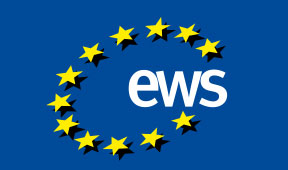
*****************************************
EWS Wien: Wir haben seit Oktober 2020 dauerhaft geschlossen!
Die EWS Wien haben per 30. September 2020 den Betrieb eingestellt.
Wir bedanken uns für Ihr Vertrauen in den vergangenen Jahren und wünschen alles Gute für die Zukunft.
Ihr EWS-Team
EWS Vienna: We are permanently closed since October 2020!
EWS Vienna ceased operations on September 30, 2020.
Thank you for your trust in the past years and best wishes for the future.
Your EWS team